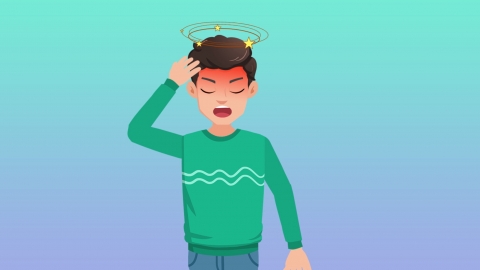What causes dizziness in a 20-year-old?
Generally, dizziness in individuals around the age of twenty may be caused by insufficient sleep, stress and anxiety, hypoglycemia, anemia, cervical spondylosis, and other factors. Symptomatic management through general treatments and medication may be necessary. If discomfort occurs, it is recommended to seek timely medical attention and undergo appropriate treatment under the guidance of a physician. Detailed analysis is as follows:

1. Insufficient Sleep
Sleep is an essential process for the brain and body to rest and recover. When sleep is inadequate, the brain cannot rest sufficiently, leading to neurological dysfunction and subsequent dizziness, which may be accompanied by symptoms such as low spirits, inattention, and memory decline. It is recommended to maintain a regular sleep schedule, avoid using electronic devices before bedtime, and create a quiet and comfortable sleeping environment.
2. Stress and Anxiety
Long-term mental stress and anxiety can activate the body's stress response, releasing hormones such as adrenaline and cortisol, which may affect blood pressure and heart rate, leading to dizziness. Accompanying symptoms may include palpitations, sweating, and insomnia. It is recommended to learn relaxation techniques such as deep breathing, meditation, and yoga to help alleviate symptoms.
3. Hypoglycemia
Irregular eating habits or prolonged fasting can lead to decreased blood glucose levels. The brain relies on a steady supply of glucose for energy, and when blood sugar levels are too low, insufficient energy supply to the brain may cause dizziness. Accompanying symptoms may include sweating, tremors, and hunger. It is recommended to eat regular meals, avoid long periods of fasting, and follow medical advice for the use of medications such as glucose sodium chloride injection, hydrocortisone tablets, and mannitol injection to alleviate symptoms.
4. Anemia
Poor nutrition, excessive blood loss, or impaired hematopoietic function can lead to anemia. In anemic conditions, the number of red blood cells decreases or their function becomes abnormal, resulting in reduced hemoglobin content and diminished oxygen-carrying capacity. As an organ with high oxygen demand, the brain may experience dizziness and other symptoms under hypoxic conditions, which may be accompanied by chest tightness, palpitations, fatigue, and pallor. It is recommended to follow a physician's guidance in using medications such as ferrous sulfate sustained-release tablets, ferrous fumarate tablets, and ammonium ferric citrate vitamin B1 syrup II for treatment.
5. Cervical Spondylosis
Extended periods of looking down at mobile phones or reading can lead to cervical spine disease, which may compress the vertebral artery or nerve roots. Compression of the vertebral artery can cause insufficient blood supply to the brain, while compression of nerve roots may trigger neurological dysfunction; both can result in dizziness, potentially accompanied by neck pain, stiffness, and arm numbness. It is recommended to follow medical advice for the use of medications such as carisoprodol tablets, eperisone hydrochloride tablets, and naproxen sodium tablets to alleviate symptoms.
It is also recommended to engage in appropriate physical exercise in daily life, such as aerobic activities like jogging and swimming, which can help strengthen physical fitness and promote blood circulation.





